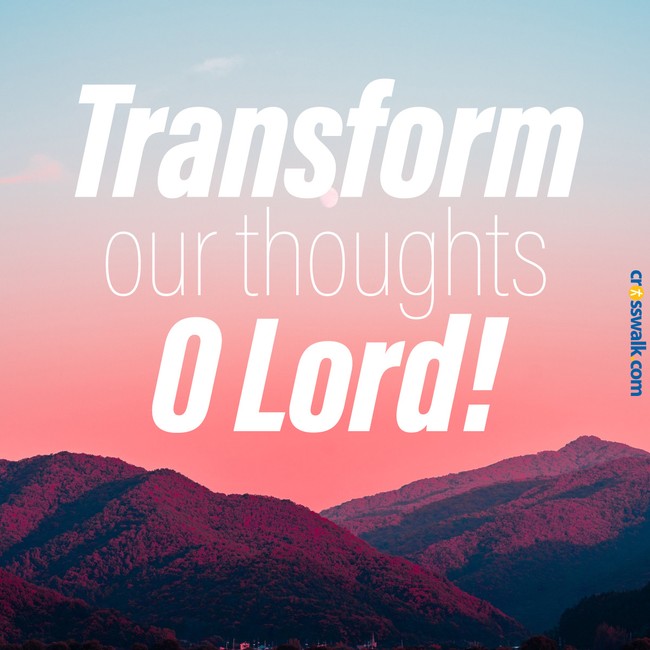You’ll never change your life until you do daily. The secret of your success is found in your daily routine. John C. Maxwell – American Author

 |
Embracing All of God’s Children
By Joann Rosario Condrey
Raising your own children is difficult enough without adding the stress of raising someone else’s; you may even be handling the responsibility while working a full-time job. God is walking this journey with you and continues to pour His grace upon you to carry the load. If you have opened your heart and life to raise a child who is not technically yours, you have undertaken an amazing thing. It takes great courage to step up to this challenge. You may be struggling to help your adopted children understand your love for them. It may be difficult to balance between discipline and fun. God is with you and will give you wisdom for the task at hand. Your selflessness is providing hope and opportunity for the children you are raising. This is exactly what God did for us through Jesus. (3, p.1412)
Excerpt from the Sisters in Faith Holy Bible, King James Version
Copyright © 2012 by Thomas Nelson, Inc.
Notes and articles copyright © 2012 by Michele Clark Jenkins and Stephanie Perry Moore

 |
CHRIST IS RISEN INDEED
But Christ has indeed been raised from the dead, the firstfruits of those who have fallen asleep. ![]() 1 Corinthians 15:20
1 Corinthians 15:20
Brother Andrew shares today’s devotional:
At the time of the cruel persecution in the Soviet Union under Stalin, public meetings were regularly held in order to ridicule religion, the church and the priests. On one occasion the inhabitants of a town were summoned to the main square. From a platform on the square, a fluent ‘scholarly’ atheist, who seemed to have many proofs against the Bible, God and the clergy addressed the public.
The crowd had listened silently. But when the local priest was called to the front to answer this brilliant oration, an uneasy muttering rippled through the crowd. The man went and stood close to the microphone and everyone held his breath. The tension could be cut with a knife, and you could hear a pin drop. What would his answer be?
We shall never know what went on in the heart of this man – his fear, his prayer – but at last his voice could be heard, resounding through the loudspeakers, not only to the crowd, but also to a large part of the city: “Khristos voskrese!” Christ is risen!
For one split second there was silence. A shudder went through the crowd and then, as a blazing testimony to the priest and to the atheist opponent, the cry broke out, unanimous and powerful: “Voistinu voskrese!” The Lord is risen indeed!
That was a bad day for atheistic propaganda in Russia. It was also a bad day for the religious leaders in Jerusalem, nearly 2,000 years ago, because they had to bribe the soldiers with much money to get them to tell lies (![]() Matthew 28:12-13). It was also a bad day for the guards who “became like dead men” (
Matthew 28:12-13). It was also a bad day for the guards who “became like dead men” (![]() Matthew 28:4).
Matthew 28:4).
But it was a bad day especially for the devil because if he had known this, he “would not have crucified the Lord of Glory” (![]() 1 Corinthians 2:8).
1 Corinthians 2:8).
The one who believes in the Cross and the Resurrection takes the side of those who are persecuted. Or, to put it another way, whoever identifies with the persecuted church stands in the power of the Resurrection – a target of misguided and corrupt people, but nevertheless together with the mighty Conqueror. The Lamb conquers and we conquer too…in Him. Hallelujah!
RESPONSE: Today I rejoice in the glorious truth of the resurrection of Jesus Christ our Lord.
PRAYER: Lord, may the persecuted church around the world resound today with a vocal outburst of assurance that Jesus is alive.

 |
Delilah
Her name means: “Dainty One”
Her character: A prostitute whose nationality is unknown, she used her beauty to betray her lover and enrich herself.
Her sorrow: That Samson lied to her, making her look foolish on three different occasions.
Her joy: That she overpowered one of history’s most powerful men, handing him over to his enemy, the Philistines.
Key Scriptures: ![]() Judges 16:4-22
Judges 16:4-22
Her Story
Her teeth gleamed white in the dusky light as a smile parted lips soft and smooth as a scarlet ribbon. Earrings glinted gold as she threw back her head and laughed out loud. Fortune had come knocking on her door that day. No lover had ever paid Delilah as well as Samson would.
The Philistine kings hated the long-haired strongman who had set their fields afire and slain a thousand of their countrymen. Each had offered Delilah an incredible sum—eleven hundred shekels of silver! She had merely to deliver the secret of Samson’s strength. His would be no match for hers, a strength born of beauty and schooled in the arts of love. Weakened by passion, he would tell her everything she needed to know.
“If anyone ties me with seven fresh thongs that have not been dried, I’ll become as any other man,” he replied to her persistent probing. Hiding a few Philistines in the room for good measure, Delilah waited until he slept and then carefully wrapped him with the thongs and exclaimed, “Samson, the Philistines are upon you!” But he had outsmarted her, snapping the cords as his enemies fled.
Like a man toying with a kitten, Samson repeated the ruse twice, tricking Delilah with crazy stories about new ropes and braided hair. Finally Delilah confronted him, “How can you say, ‘I love you,’ when you won’t confide in me? This is the third time you have made a fool of me and haven’t told me the secret of your great strength.” Worn down by her nagging, Samson gave in.
“No razor has ever been used on my head,” he confided, “because I have been a Nazirite set apart to God since birth. If my head were shaved, my strength will leave me, and I will become as weak as any other man.” Years earlier, before his birth, an angel had instructed his mother that he should drink no wine, touch nothing unclean, and never cut his hair. He was to be dedicated to God in a special way, destined to play a great role in God’s plan to free his people from their Philistine overlords. A strong man unable to subdue his own tempestuous nature, Samson had already broken the first two stipulations of his vow. Now he was about to break the third, preferring the good graces of a woman to the favor of his God.
Sensing she had heard the truth at last, Delilah sent word to the Philistines. After cutting his hair while he slept, she once again called, “Samson, the Philistines are upon you!” This time Samson awoke from his sleep unable to resist his enemies, who quickly seized him, gouging out his eyes. Then they imprisoned him in Gaza, where he spent his days in darkness, performing women’s work grinding grain.
That’s the last we hear of the lovely, treacherous, and now wealthy Delilah, but not the last we hear of her lover. Slowly Samson’s hair began to grow back, first a short cap to warm his head and then a cover for his ears. What harm can a blind man do us? the Philistines must have reasoned.
One day they held a great celebration in honor of Dagon, god of the harvest, for delivering Samson into their hands. Oblivious to their danger, they brought him out of prison to make sport of their once-mighty enemy. But when Samson stood among the pillars of their temple, he prayed, “O Sovereign Lord, remember me. O God, please strengthen me just once more, and let me with one blow get revenge on the Philistines for my two eyes.” Then he braced himself against the two central pillars of the temple and pushed. The roof buckled and collapsed, and Samson and his enemies were buried together under its rubble. By his death, Samson killed more Philistines than he had in life. Just as the angel had predicted, Samson had begun a work of deliverance that David would complete many years later.
The strange story of Samson and Delilah is hardly edifying. It’s tempting to conclude that the selfish, ill-disciplined Samson had finally met his match in the greedy Delilah. A visitation by an angel, the gift of supernatural strength, a prophetic destiny—such obvious blessings could not assure Samson’s devotion. Why would God use such a man, enabling him to become a judge in Israel? What a contrast to Deborah, who had ruled Israel a century earlier! Perhaps God had little promising material to choose from, given the state of his people during an era of Israel’s history where “everyone did as he saw fit” ( ![]() Judges 21:25).
Judges 21:25).
If anything, Delilah’s role in this sordid tale assures us that God will use anything and anyone to accomplish his purpose. Even our sin. Even our enemies. Our deliverance is purely a matter of grace. But how much better if we become people set apart for his service, whose inner strengths match our outer strengths, enabling us to live out our destiny assured of God’s pleasure.
Her Promise
Even the sordid story of Delilah and her Hebrew lover, Samson, conveys an important truth: God loves us and will not abandon us even when we make mistakes, even when we sin. Over and over throughout the biblical narrative, we see God using people who are great sinners, people who are less than perfect, people who through their own folly fail and only then recognize their need of him. He didn’t abandon people like Samson, foolish and sinful though he was, and he won’t abandon us, foolish and sinful though we might be.

 |
 | Words Like Honey |
“Gracious words are like a honeycomb, sweetness to the soul and health to the body.” Proverbs 16:24 (ESV)
In February 2020, before the world transformed before our eyes, I committed to writing every day and sharing those words on social media. My goal was to encourage those who’d read my writing, offering hope, brightening days and sometimes challenging perspectives.
Today, I use this writing practice as a form of meditation, an intentional way to be still and hear from God before sharing His love with others. Throughout the process, I’ve grown to trust that my words will reach whoever needs them, wherever they are in their lives and wherever they are in this world. Although I’ll never know the full impact of this practice, I do know the words I’ve shared have helped some navigate hard times and experience a sense of peace.
Still, there are certainly times when I don’t feel like my words are enough — when I wish I could do more to help others or hurry along the healing.
I work as a nurse, and many times, in traumatic or life-altering circumstances, all I can do is offer a word of encouragement or simply show up and be present with those going through healthcare crises.
But when those moments arise, instead of becoming frustrated with my small offering, I remind myself of Proverbs 16:24: “Gracious words are like a honeycomb, sweetness to the soul and health to the body.” To me, this scripture is a constant reminder of the power of words, which can invite God to transform us and our situations and contribute to our physical, mental, spiritual and emotional health.
As we celebrate World Health Day, I hope this scripture now becomes a reminder for you as well. Know that right where you are, you can use your words to encourage, speak truth, express gratitude, ask intentional questions and offer prayer. You can make an impact on those you know and love as well as the countless others who are on this journey of life alongside you.
Whether you write a note to a friend or share a kind word with a stranger, your God-honoring words can contribute to the holistic health of humanity.
If you’re concerned about what words to say, ask God to meet you in your desire to share gracious words. Then lean in and listen. What is it that you need to hear right now? Which words is your soul longing for? When you find the words you need to hear, consider that maybe someone else needs them too.
Lord, thank You for our ability to share words that encourage others and point them to You and the healing You want to bring to our souls, minds and bodies. May we have conversations that are full of grace, that build others up, and that are pleasing in Your sight. In Jesus’ Name, Amen.
OUR FAVORITE THINGS
Please join us in partnering with moms around the world who want to see their children grow to be healthy, strong followers of Jesus. Through the work of Compassion International, children are being released from poverty — in Jesus’ name and always through the local church. ![]() Would you join us in sponsoring a child today? When you become a sponsor, Compassion will send you a copy of our Keep Holding On study as our thanks for investing in the life of a child.
Would you join us in sponsoring a child today? When you become a sponsor, Compassion will send you a copy of our Keep Holding On study as our thanks for investing in the life of a child.
ENGAGE
Want to connect with today’s devotion author, Tracie Braylock? Give her a follow on ![]() Instagram, and be encouraged by her inspiring posts!
Instagram, and be encouraged by her inspiring posts!
FOR DEEPER STUDY
Colossians 4:6, “Let your conversation be always full of grace, seasoned with salt, so that you may know how to answer everyone” (NIV).
Proverbs 12:25, “Anxiety in a man’s heart weighs him down, but a good word makes him glad” (ESV).
Is there someone in your life who has taken the time to share gracious words with you? How did their words contribute to your health or uplift you, and what can you do to acknowledge the impact they’ve had in your life?
We’d love to hear from you! Share your thoughts ![]() in the comments.
in the comments.
© 2024 by Tracie Braylock. All rights reserved.
Proverbs 31 Ministries thanks Compassion for their sponsorship of today’s devotion.
![]() Click here to view our policy on third-party links.
Click here to view our policy on third-party links.
Proverbs 31 Ministries
P.O. Box 3189
Matthews, NC 28106
Sight and Sound
By DaySpring

Therefore, if you have any encouragement from being united with Christ, if any comfort from His love, if any common sharing in the Spirit, if any tenderness and compassion, then make my joy complete by being like-minded, having the same love, being one in spirit and of one mind. PHILIPPIANS 2:1-2 NIV
When she bought the tickets for her video-game-loving family, she couldn’t have guessed how great the experience would be. She just knew an orchestra was coming to town, playing all the musical scores from their favorite Zelda games. When the day finally came, the family filed into their seats along with other gamer fans and waited for the show to start.
Suddenly, large screens behind the orchestra lit up with familiar scenes from the game’s fantasy worlds. Simultaneously, flutes and oboes, drums, and cellos joined in unison with all the other instruments, overwhelming the audience with the wonder of full orchestral sound. Coupled with the background visuals, the epic sounds sent the audience into another world of adventure and mystery, valor and purpose. Even those who never played the video game at last understood why the game had garnered such respect and enthusiasm from young and old alike. Sight and sound united as a powerful portal into a life grander than their own.
Similarly, God unites His people to produce a powerful, epic effect on the world around us. Though we each have distinct personalities and unique gifts, God’s most powerful expression of love unleashes when we unite them to build His kingdom. In the marriage of sight and sound—visually, demonstrably living out our faith while verbally telling others about the goodness of God—people will finally begin to understand what the buzz of the gospel is all about. In uniting and working together, God’s people also encounter a surprising and otherworldly experience: real joy. Together we are overwhelmed with the wonder of God’s kingdom purpose, which is far bigger and better than anything we could conceive or achieve by ourselves.
Father, I want to experience the joy of working together with Your people to tell others the epic story of Your great love expressed through Jesus. Help me to humbly accept my role in the greater scheme of what You have planned so that others will see and experience Your glory. In Jesus’s name.
This is an excerpt from True Sweetness: Growing in the Fruits of the Spirit – a devotional now available on DaySpring.com. Shop all books, journals, and devotions from DaySpring here.

The Greatest Protection for Your Marriage
The Greatest Protection for Your Marriage
By Gina Smith
I am a person who loves routine. I love the predictable. Change has a tendency to rock my world. But the one change I do welcome, and even ask God for, is for God to continue to grow my inward person. I never want to be set in my ways. I want to be consistently growing, being renewed, and becoming more like Jesus.
Romans 12 exhorts us: “… be transformed by the renewal of your mind, that by testing you may discern what is the will of God, what is good and acceptable and perfect.”
In the same way, I want to be continually growing in my marriage relationship. I don’t want it to grow cold and I don’t want to take my husband for granted. With that in mind, he and I are regularly looking for ways to connect and grow closer. Whether it is exercising together, having a regular, simple date night, taking a trip together, or supporting each other in our God-given professions, my husband and I work at growing together in our marriage friendship and relationship.
But as much as we might try to connect and stay close, there is a knitting together of hearts that can only take place when we choose to come into the presence of God. This can only happen when we make it a habit to seek God, first and foremost, before we seek out any resource or person.
Matthew 6 reminds us to “seek first the kingdom of God and his righteousness…” Jeremiah 29 tells us that will seek God and find him, when we seek him with all our heart.”
The times I have stepped back and taken an objective look at myself and my marriage, asking God to show me what I need to see, I have clearly seen habits, attitudes, and responses that have grieved me.
Those exposed issues are there because I’ve been influenced more by my own sin or the culture than by the Word of God. Yet I am comforted by the knowledge that there is nothing that the presence of God cannot overcome.
As those habits and attitudes have been exposed, and I’ve brought them to God asking Him to change me, I have found myself experiencing more of the presence of God. When that happens, my marriage becomes more God-centered.

Why does this matter? Because Satan is on a mission to kill, steal and destroy marriage. His attacks are constant. 1 Peter 5:8 tells us to “Be sober-minded; be watchful. Your adversary the devil prowls around like a roaring lion, seeking someone to devour.”
Our enemy wants to cause confusion, division, and conflict. Our only hope is found as we sit in God’s presence, interrupting Satan’s attacks, and allow God to flood us with his perspective, grace, and love for our spouse.
Here are two more verses to meditate on and apply to your marriage today:
“Therefore prepare your minds for action. Be sober-minded. Set your hope fully on the grace to be given you at the revelation of Jesus Christ.” – 1 Peter 1:13
“But the end of all things is at hand: be ye therefore sober, and watch unto prayer.” 1 Peter 4:7
Let’s pray for our marriages today:
Oh, Father! Please cause us to desire to sit in your presence. We want to allow you to transform our minds. We need you to give us your love for each other. We need your presence in our marriage so that our heart’s might be knit together in the way that only you can do! In Jesus’ Name, Amen.
Gina Smith is a writer and author, and currently writes for Crosswalk.com, iBelieve.com, is a mentor and writer for Million Praying Moms, and is a devotional writer for the Million Praying Moms – Pray The Word Journal. Gina also runs a private, online encouragement group for moms of boys called “The MOB Society.“ Gina recently authored her first book “Grace Gifts: Practical Ways To Help Your Children Understand God’s Grace.“ You can also find her at the “Million Praying Moms” Podcast and on MOB Live!
You can find Gina at her personal blog ginalsmith.com.
It’s time we get real about marriage & relationships! Join marriage coach, Dana Che, as she and her guests deliver witty, inspirational, real relationship talk from a faith-based perspective. New episodes of the Real Relationship Talk Podcast drop every Tuesday.


CrossCards
A Prayer to Keep a Grateful Heart – Your Daily Prayer
A Prayer to Keep a Grateful Heart
By Lynette Kittle
“Let the peace of Christ rule in your hearts, since as members of one body you were called to peace. And be thankful” – Colossians 3:15
Having a grateful heart seems to be rare these days and at a premium to find. Social media is full and overflowing with discontented hearts–hearts that are angry, disappointed, hurt, grieving, and more. Still, God calls us to be thankful. So where and how do we gain gratefulness in such an ungrateful world?
Many individuals are living with an outlook of lack, seeing all the things they don’t have because it’s much easier to look at our glasses half-empty than half-full. Seeing our lives as lacking leads us to believe that if we only have more—more of the things we believe we need to be happy— our lives and our attitudes would be different. But it’s not true. Grateful hearts don’t come from owning things, holding positions, or having everyone love us. In an ever-changing world, there is no guarantee of hanging onto earthly possessions, especially in the shadow of natural disasters, wars, and more.
It’s Up to Us to Choose
Whether we believe it or not, especially as Christians, it’s up to us to choose to focus on what God has so graciously given us rather than what the world gives and takes away on a daily basis. Godly gratefulness is not dependent on what we own; yet, God has given us so much to be thankful for in life.
Colossians 3:17 encourages, “And whatever you do, whether in word or deed, do it all in the name of the Lord Jesus, giving thanks to God the Father through Him.”
Even if we have nothing to our names, we have incredibly valid reasons to thank Him daily. Things, positions, locations, and more don’t bring happiness; rather, true gratitude comes from deep within us.
Gratefulness as a Sacrifice
Sadly, life sometimes brings tragic losses of loved ones, homes, jobs, and more, but still God calls us to be thankful. He knows our weaknesses and understands how it can be difficult for us to do so when we’re disappointed, discouraged, suffering, or grieving. Although 1 Thessalonians 5:18 instructs us to “Give thanks in all circumstances; for this is God’s will for you in Christ Jesus,” it doesn’t mean we thank God for the sad situations, but thank Him in the midst of them.
Some believers are confused by this verse, thinking God expects us to thank Him for the sad and tragic situations and losses that bring us disappointment, discouragement, suffering, and grief. But He’s not. God’s given us so many spiritual blessings, not dependent on our circumstances, that we can praise Him and give Him thanks no matter our situation. He is compassionate and recognizes this kind of gratitude as a sweet sacrifice to Him. Psalm 116:17 encourages our sacrificial thankfulness. “I will sacrifice a thank offering to You and call on the name of the Lord.”
When we do, God responds, as recorded in Psalm 50:23. “Those who sacrifice thank offerings honor Me, and to the blameless I will show My salvation.” In uncertain times, God calls us to focus on Him and His faithfulness instead of our situations, to remind ourselves of His promise to never leave or forsake us (Hebrews 13:5) and to trust Him to help us through everything we face in life.
Let’s pray:
Dear Father,
Thank you for all Your spiritual blessings You so lovingly and graciously bestow upon me. As Ephesians 1:3 states, “Praise be to the God and Father of our Lord Jesus Christ, who has blessed us in the heavenly realms with every spiritual blessing in Christ.” Strengthen and encourage me, Lord, to be thankful each and every day of my life for all You have given to me. Help me to focus on all Your benefits. Lead me to live a life of sincere gratitude to You. Keep my heart softened and set on seeking You. Teach me through Your Holy Spirit to walk and live each and every day of the year, with a grateful heart, not dependent on my situation and circumstances but based on who You are and what You’ve given Me through Jesus Christ, my Savior.
In Jesus’ name, Amen
Photo credit: ©GettyImages/ksenija18kz
Lynette Kittle is married with four daughters. She enjoys writing about faith, marriage, parenting, relationships, and life. Her writing has been published by Focus on the Family, Decision, Today’s Christian Woman, kirkcameron.com, Ungrind.org, StartMarriageRight.com, and more. She has a M.A. in Communication from Regent University and serves as associate producer for Soul Check TV.
Teach Us to Pray is a FREE prayer podcast hosted by iBelieve writer Christina Patterson. Each week, she gives you practical, real-life tips on how to grow your faith and relationship with God through the power of prayer. To listen to her episode on What to Pray in the Morning for a Worry-Free Day, click below!

Now that you’ve prayed, are you in need of someone to pray for YOU? Click the button below!

Visit iBelieve.com for more inspiring prayer content.

8 Impacts of Technology on Christian Living
- Britt Mooney
- Contributing Writer

Technology has had revolutionary effects throughout history. New weapons, materials for roads, and more have changed the paths of nations and empires.
Gutenberg invented the printing press in 1436, which impacted the church since the first book printed, the Bible, could be owned and read in everyone’s home. In part, this led to the popularity of the Protestant movement.
New technologies have arrived at an alarming speed over the past century, from televisions to personal computers to smartphones. As technology shapes our culture, the church adapts, as well.
These changes have had positive and negative effects. On the positive side, it can be a great tool for many tasks. On the negative side, used poorly, it keeps us from in-person, regular relationships. Technology can be a great tool but can’t replace the human relationship required in the Body of Christ. So, what are some positive and negative impacts it has on the church every day?
Here are eight impacts of technology on Christian living that we should consider.
Photo Credit:©Getty Images/Blue Planet Studios

1. Assisting People with Disabilities
Slide 1 of 9
The church exists for all people, and technological advancements have significantly transformed the lives of Christians with disabilities. It has offered innovative solutions to enhance accessibility, inclusion, and participation in various aspects of Christian life.
For example, assistive technologies like screen readers, text-to-speech software, and voice recognition programs, enable individuals with visual impairments or learning disabilities to access and engage with digital content—including the Bible, religious literature, and online worship services. Additionally, adaptive devices such as Braille displays and tactile graphics provide tactile feedback for individuals with visual impairments, allowing them to read and study Scripture independently.
Advanced communication technology—such as video conferencing platforms and live streaming services—allow people who cannot attend church in person due to health concerns or mobile impairments to participate in religious gatherings virtually. Online communities and social media platforms also offer opportunities for fellowship, support, and spiritual encouragement for individuals with disabilities, fostering connections and relationships within the global Christian community.
Moreover, technology systems like ramps, elevators, and assistive listening systems have enabled churches and religious organizations to improve physical accessibility in their facilities.
However amazing these developments are, they should never be an excuse for people to neglect spending time with people who have disabilities. Technology can tempt us to think our work is done, but everyone requires human relationships and personal assistance.
Photo Credit:©Getty Images/batuhan toker

2. Advancing Language Translation
Slide 2 of 9
Technology has transformed multiethnic Christian communities. Tools like language translation have facilitated communication, understanding, and collaboration even when members speak different languages.
Unlike in the past, translation work does not take days or weeks of time. Tools—such as translation apps, software programs, and web-based platforms—utilize machine learning algorithms and natural language processing techniques to provide accurate, instant translations in multiple languages. The tools empower Christians from different cultures to communicate effectively. They can also engage with scripture, religious texts, and sermons in their native languages, fostering inclusivity and accessibility for diverse linguistic communities.
Other technological advances make it possible for messages in different languages to be shared worldwide. Thanks to video conferencing platforms and live streaming services, Christian content can go beyond sharing content worldwide. Churches, ministries, and Christian organizations can also broadcast their work in multiple languages, ministering to believers worldwide in their preferred languages.
While these technologies can foster communication across cultures, there’s nothing like learning a new language as an act of love. Learning another person’s language is difficult and takes time, but that effort reveals deep love and desire to communicate in someone else’s heart language. A person’s language is key to how they think, as the words’ structure and complexities affect more than we think. Learning a language personally, especially fluently, helps us understand people, better love them, and better communicate God’s truth.
Photo Credit:©GettyImages/champpixs

3. Expanding the Availability of Bible Translations
Slide 3 of 9
Different translations of the Bible abound. Technological advancements have made them far more available and accessible, revolutionizing how Christians engage with Scripture.
One key advancement is the Bible being digitized, which has enabled people to create vast digital libraries containing many Bible translations in many languages. Websites, mobile apps, and e-readers give Christians instant access to a wealth of Bible versions at their fingertips. They can explore and compare translations, delve into deeper insights, and enhance their understanding of scripture, all instantly.
Advanced translation software and digital publishing technology have also benefitted efforts to share the Bible across nations. Automated translation tools and collaborative platforms enable translators to work more efficiently and accurately. They can provide what many Christian communities across the world need, in all their languages’ diversity.
Not all Bible translations are created equally, however. Some are direct translations. Others are paraphrases. Sadly, some have been designed to twist orthodox Christian doctrine. We still need pastors and trusted leaders to help us engage with different translations. We also weren’t meant to study the Bible in isolation. Ready availability shouldn’t justify a “just me and Jesus” mentality that dismisses how the Body of Christ is necessary to teach and disciple us.
Photo Credit:©GettyImages/doidam10

4. Increasing Access to Sermons and Devotional Content
Slide 4 of 9
Technology has given us phenomenal access to sermons and devotional content, empowering us to engage with spiritual teachings in unprecedented ways.
One significant advancement is how digital platforms and streaming services provide on-demand access to work by so many pastors, theologians, and Christian leaders worldwide. Through websites, podcasts, and video-sharing platforms, Christians can now access sermons and devotional content anytime, anywhere. Sermons of famous or influential pastors from centuries ago can even be found easily and read aloud.
Mobile apps and digital resources offer convenient access to sermons, devotionals, and study materials. Christians can go about their day while downloading sermons, accessing daily devotionals, participating in Bible studies, and more. They can integrate spiritual practices into their daily routines and lifestyles with little effort.
Moreover, online communities provide opportunities for sharing and discussing these sermons and devotional content. Christians can connect with like-minded individuals around the world, share insights and reflections, and receive encouragement and support, fostering community and accountability.
But how do we know what good and bad doctrine is? The Bible does delineate between good and bad doctrine and teachers. We need trusted leaders and mentors to help us sift through content in community. Access to online content shouldn’t replace engagement with a local body of Christ and a local pastor who knows us personally.
Photo Credit:©GettyImages/thanasus

5. Increasing Access to Bible Reference Materials
Slide 5 of 9
Before the internet exploded, Christians needed a library or plenty of money to access commentaries and concordances. Much of this expensive material is available for cheap or free, profoundly impacting how Christians study and engage with scripture.
To begin with, digitized reference materials have helped create vast online libraries of Bible study resources. Through websites, mobile apps, and e-readers, Christians now have instant access to commentaries, concordances, lexicons, and language tools, helping them delve into what scripture means.
Furthermore, advancements in search and indexing technology have made it easier to use those digital reference materials. Thanks to advanced search algorithms and cross-referencing tools, we can quickly locate specific passages, words, or topics in Bible reference material. Study and research has become more efficient and effective.
Mobile apps and digital tools also offer portability and convenience, allowing Christians to carry their entire Bible reference material library wherever they go. With just a few taps, we can even explore Scripture in its original Greek and Hebrew.
As much as we enjoy this access, our discipleship happens through relationships—modeled by Christ on earth and through people like Paul and Barnabas. We must resist being educated without being discipled. This is the local church’s role, to disciple us through spiritual conversations with people who know us and can keep us accountable.
Photo Credit:©GettyImages/Tutye

6. Provide Online Worship Services
Slide 6 of 9
When the COVID pandemic hit, every church went online. Now, online worship services are widely adopted, and these digital platforms have revolutionized how Christians gather, engage, and participate in worship. Connection, accessibility, and outreach has shifted.
With online worship services, we reach a global audience. Through live streaming and video conferencing platforms, churches can transcend geographical boundaries and time zones. And, as mentioned earlier, individuals who cannot attend in person due to distance, illness, or other constraints can participate in worship remotely. Unity and community among believers regardless of physical location have become possible.
Online worship services also offer flexibility and convenience. Virtual worship services often incorporate elements such as live chat, prayer requests, and interactive polls, enabling worshippers to participate in real-time.
However, if the availability of online worship services gives us an excuse to stay home instead of gathering with the saints, we have an issue. Part of belong to a community is sacrificing our time to be in the same place at the same time, as we do when we gather with family. As the family of God, we make our gatherings important. Online services bless people who might need to miss one Sunday or be bedridden, but it’s not the same as physically worshipping in the same place. We also remember that the bedridden need personal visits more than another sermon. We must take time to worship together and to spend in-person time with church members we cannot see every Sunday in the church sanctuary.
Photo Credit:©GettyImages/Daniel A’Vard

7. Promoting Access to Christian Classics
Slide 7 of 9
As with commentaries and concordances, the digital age has made expensive ancient texts readily available for low cost. Like commentaries, concordances, and various Bible translations, these texts are now easy to find in digital libraries. Christians now have instant access to the writings of the early Church Fathers or the Christian philosophers like Augustine and Aquinas, regardless of physical location or access to traditional libraries.
Studying these texts has never been easier, thanks to sophisticated search algorithms and cross-referencing to quickly locate specific passages, themes, or authors. While a few decades ago these resources required huge computers that could not be transported, mobile apps and digital tools allow Christians to carry their entire library of ancient texts wherever they go.
With two thousand years of church history, many Christian pastors, priests, and philosophers wrote down their thoughts and insights. This access can be a treasure alongside modern translation since mainstream Christianity has forgotten or dismissed much. At the same time, with the Church fathers and others, these men and women had flaws, and regular discussions with pastors and leaders helped us navigate these writings in the community.
Photo Credit:©GettyImages/Liudmila Chernetska

8. Fostering Church Communication
Slide 8 of 9
Advancements in technology have revolutionized how the local and global church communicates. Connections, collaboration, and support can occur on a global scale. Through websites, forums, and social networking sites, believers can share prayer requests, testimonies, and words of encouragement, fostering a sense of belonging and unity among diverse faith communities.
Furthermore, video conferencing and live-streaming platforms allow Christian communities to meet through virtual gatherings and events. Apps offer convenient ways for Christians to stay connected and engaged with their faith communities on the go. Just a few taps on a smartphone provide access to church directories, event calendars, and communication channels. Christians can stay informed and connected with fellow believers wherever they are. Local church groups can get on a text stream or email list or use messaging apps like Slack to engage with others, make plans, and encourage one another. For missionaries, some apps are more secure from spying and useful in countries with governments hostile to the government.
Staying connected to spiritual family across the country or globe is invaluable. At the same time, these connections don’t substitute for meeting and gathering in person. Inclusion on an email list doesn’t equate to being an engaged and productive community member. These avenues of communication are tools to facilitate choosing to come together as God’s family.
Photo Credit:©Unsplash/Rodion Kutsaev

How Can We Wisely Handle Technology in the Church Today?
Slide 9 of 9
We have benefitted immensely from technology. We also have to consider when we are misusing it.
For example, younger Christians who have grown up with smartphones and social media may see being on a platform or following a certain person as important and even the same as gathering locally. Technology can be a phenomenal tool, but it can also be abused. We must all remember that worship isn’t about convenience. It’s about sacrifice. As David said, “I will not worship God with what costs me nothing.”
We can see easily that technology is not enough. For example, we have more access to the Bible and reference materials than ever. Yet younger generations are more unchurched and unaware of biblical ideas than ever before. We should be thankful for technology, but not let it rob us of the growth and discipleship that only relationships can bring.
The technology isn’t evil. Our uses can be. We must continue to guard our hearts in all things to apply our lives to following Jesus and loving others, using these tools when appropriate.
Peace.
Photo Credit:©Getty Images/monsitj
 Britt Mooney lives and tells great stories. As an author of fiction and non -iction, he is passionate about teaching ministries and nonprofits the power of storytelling to inspire and spread truth. Mooney has a podcast called Kingdom Over Coffee and is a published author of We Were Reborn for This: The Jesus Model for Living Heaven on Earth as well as Say Yes: How God-Sized Dreams Take Flight.
Britt Mooney lives and tells great stories. As an author of fiction and non -iction, he is passionate about teaching ministries and nonprofits the power of storytelling to inspire and spread truth. Mooney has a podcast called Kingdom Over Coffee and is a published author of We Were Reborn for This: The Jesus Model for Living Heaven on Earth as well as Say Yes: How God-Sized Dreams Take Flight.
This article is part of our larger resource library of Christian questions important to the Christian faith. From core beliefs to what the Bible says about angels, we want to provide easy to read and understand articles that answer your questions about Christian living.
What Do Christians Believe?
How Old Is the Earth?
Who Is My Neighbor in the Bible?
What Does God Look Like?
Are Guardian Angels Real?
What Does it Mean to Be Zealous for God?

5 Things to Know about Biblical Prophecy, Days of Darkness, and the Solar Eclipse
- Whitney Hopler
- Crosswalk.com Contributing Writer

The connections between astronomical events and biblical prophecy have sparked curiosity and wonder since ancient times around the world. On April 8, 2024, a solar eclipse will take place across North America. Many people are wondering about its potential spiritual significance. Do Bible prophecies or stories, such as the three days of darkness, relate to solar eclipses at all? What biblical meaning can we discover from solar eclipses? Here are five key things to know about biblical prophecy and the solar eclipse of April 8.
Photo Credit: ©GettyImages/Pitris

Solar Eclipses and Biblical Symbolism Are Complex
Slide 1 of 5
While solar eclipses are natural astronomical events that occur regularly on our planet, they are also spiritual reminders of our Creator’s power over creation. The alignment of the sun, moon, and earth during an eclipse reflects the intricate order of the cosmos that God has designed. As we ponder that, we can experience a powerful sense of awe. Solar eclipses can inspire us to move closer to God as we marvel at the glorious sight we see in the sky.
While the Bible doesn’t provide clear prophecies about solar eclipses, celestial bodies like the sun and moon can represent spiritual concepts in the Bible. The sun, with its life-giving light and warmth, has been a symbol of God’s loving power since ancient times. When eclipsed by the moon, this symbolism takes on added layers of meaning, representing the contrast between spiritual light and darkness. Solar eclipses can also evoke themes of divine judgment and renewal. In the Old Testament, celestial disturbances – including the darkening of the sun – are associated with the coming of the day of the Lord. These cosmic signs serve as warnings of impending judgment and the need for repentance and spiritual readiness.
However, it’s important to approach the symbolic interpretation of solar eclipses with caution and humility. While eclipses are significant events that direct our attention to our Creator, eclipses don’t necessarily connect to specific prophecies in the Bible. Attempts to attribute specific meanings or predictions to eclipses can lead to dangerous misinterpretation and speculation. We need to be careful not to make assumptions about what an eclipse means biblically. The Bible’s symbolism is rich and complex, defying simplistic explanations or narrow categorizations. So, instead of fixating on certain interpretations, it’s best to simply allow an eclipse to inspire us with wonder at God’s work. Eclipses are wondrous examples of the reality that Psalm 19:1 points out: “The heavens declare the glory of God; the skies proclaim the work of his hands.” Experiencing a solar eclipse has great spiritual meaning simply by serving as an occasion to feel awe and thank God for his work in our lives.
Photo Credit: ©GettyImages/Pitris

The Bible Includes Various Passages on the Sun Darkening
Slide 2 of 5
The darkening of the sun is a recurring theme in biblical prophecy. A darkened sun may symbolize cosmic upheaval or divine intervention. Several passages speak to this phenomenon, including Isaiah 13:10, which foretells the day of the Lord – the culmination of God’s redemptive plan – when: “The stars of heaven and their constellations will not show their light. The rising sun will be darkened and the moon will not give its light.” This verse is within a prophecy concerning God’s judgment of Babylon. It represents the upcoming intervention of divine justice.
Similarly, the prophet Joel speaks of the sun being turned to darkness in connection with the day of the Lord. Joel 2:31 proclaims: “The sun will be turned to darkness and the moon to blood before the coming of the great and dreadful day of the Lord.” Here, the Bible presents the darkening of the sun as a sign before a climactic moment in history, pointing to the arrival of God’s ultimate judgment and redemption.
The New Testament also references the darkening of the sun in the context of Jesus’ crucifixion. Reports from the Gospel books of Matthew, Mark, and Luke all describe how darkness covers the land for three hours – from 12 noon to 3 p.m. – during the crucifixion ordeal (Matthew 27:45, Mark 15:33, and Luke 23:44). This darkness shows the profound significance of Jesus’ sacrificial death to creation. It marks the climax of Jesus’ earthly ministry and redemptive work as the world’s Savior, paving the way for a new era in human history. The darkened sun also foreshadows the triumph of light over darkness through Jesus’ resurrection.
Other passages in the New Testament that describe the sun darkening relate to Jesus’ second coming. Jesus uses the imagery of a darkened sun metaphorically in Matthew 24:29 and Mark 13:24 to describe God’s judgment of sin and says that the sun will be darkened in the time preceding his second coming to Earth. In Luke 21:25, Jesus also mentions “signs in the sun” as well as in the moon, stars, and other parts of creation that will happen before his second coming.
These Bible passages invite us to ponder the mystery and majesty of God’s unfolding plan for humanity. Through astronomical phenomena like solar eclipses, we can develop awe and reverence for God that strengthens our faith and motivates us to trust him more.
Photo Credit: © Getty Images/mbolina

The Bible Also Mentions Three Days of Darkness
Slide 3 of 5
In addition to reports of the sun darkening, the Bible also mentions periods of darkness lasting three days. Three days of darkness seems to represent God’s judgment of sin, as well as a demonstration of God’s power over creation that gets people’s attention, motivating them to obey God. The Bible uses the number three as a symbol of completeness or emphasis.
One notable instance happens in Exodus 10:21-23, during the Plague of Darkness on Egypt.: “Then the Lord said to Moses, ‘Stretch out your hand toward the sky so that darkness spreads over Egypt – darkness that can be felt.’ So Moses stretched out his hand toward the sky, and total darkness covered all Egypt for three days. No one could see anyone else or move about for three days. Yet all the Israelites had light in the places where they lived.” This darkness is so strong that people could feel it enveloping all of Egypt for three whole days. This plague shows Pharaoh God’s power and sovereignty over creation. It also compels Pharaoh to relent and release the Israelites from slavery. The fact that the Israelites have light where they live – even in the middle of the three days of darkness – shows their spiritual enlightenment as people who follow the living God.
The story of Jonah also features three days of darkness. Jonah 1:17 says that Jonah spent “three days and three nights” in the belly of a huge fish after fleeing from God’s call to preach repentance to the city of Nineveh. The environment inside a fish would be quite dark. Some Bible scholars have speculated that this period of confinement may have coincided with a solar eclipse. According to research featured on BibleArchaeology.org, scholars have identified solar eclipses that could potentially align with the timeframe of Jonah’s ordeal. While the exact dating of biblical events can be challenging, these astronomical findings offer intriguing insights into the possible phenomena in the sky during Jonah’s experience. Whether or not a solar eclipse directly coincided with Jonah’s three days of darkness inside the gigantic fish, the symbolism of three days of darkness in that story may represent the theme of God’s intervention and the powerful transformation that comes from repentance. It’s interesting that Jesus mentions Jonah’s experience in Matthew 12:40: “For as Jonah was three days and three nights in the belly of the beast, so will the Son of Man be three days and three nights in the heart of the earth.” This connects Jonah’s experience to Jesus’ own future death and resurrection.
Considering biblical passages about three days of darkness can enrich our understanding of the symbolic significance of events like solar eclipses. Unusual periods of darkness highlight the interconnectedness of celestial events and God’s purposes. Even when we can’t understand the full meanings of these events, we can gain inspiration from these stories that motivate us to seek God more.
Photo Credit: ©iStock/Getty Images Plus/kevron2001

Be Cautious When Interpreting Prophecies
Slide 4 of 5
While potential connections between solar eclipses and biblical prophecies spark our curiosity, it’s important to approach interpretations with caution. The prophetic symbolism of solar eclipses and other Bible passages about darkness is complex. Attempts to pinpoint specific meanings can lead to misinterpretation. Rather than fixating on possible predictions, it’s more fruitful spiritually to allow both eclipses and prophecies to stir awe in our souls and lead us to deeper relationships with God.
Since God has given us strong minds that are capable of critical thinking, we should pursue wisdom about eclipses and prophecies carefully, with caution and humility. It’s vital to approach interpretations with discernment and a recognition of the limitations of our human understanding. Different Bible scholars sometimes reach different interpretations of biblical prophecies. So, rather than just accepting what we read or hear, we should study prophecies in the Bible ourselves and come to their own understanding. It’s useful to pray about what we read and ask the Holy Spirit to help us understand how to respond to it – knowing that God may not reveal the full meaning to us at our time in history. We don’t need to know details that God is not yet ready to reveal. All we need to know is how God wants us to respond to the prophecies in the Bible. As we read the Bible and apply its words to our lives, what matters most is that we keep growing in holiness. Attempts to predict or extrapolate specific events or timelines from biblical prophecy or eclipses can lead to misguided speculation and sensationalism. Throughout history, many people have made bold claims about the end times or apocalyptic events based on their interpretations of celestial signs – only to be proven wrong or misled.
Let’s remember Jesus’ own words that caution us not to try to predict the exact times of certain events mentioned in biblical prophecies. Jesus tells us in Matthew 24:36 about the timing of his second coming to Earth: “No one knows the day or hour. The angels in heaven don’t know, and the Son himself doesn’t know. Only the Father knows.” Later in that same chapter, in verses 42 and 44, Jesus emphasizes being prepared spiritually rather than trying to predict timing: “So be on your guard! You don’t know when your Lord will come. … Always be ready! You don’t know when the Son of Man will come.”
Instead of giving in to the temptation of speculative interpretations, it’s better to simply be humble and open to what God wants us to learn from the mysteries of the cosmos and the depths of biblical prophecies. As we humbly seek to learn more with clear minds and open hearts, we can experience wonder that deepens our faith – even without understanding the full details.
Photo Credit: Unsplash/Abed Ismail

Let Eclipses Inspire Us to Move Closer to God
Slide 5 of 5
A solar eclipse presents us with a unique opportunity to draw closer to God. So, instead of getting lost in speculation about it, let’s just embrace the awe of experiencing the eclipse and let it inspire us to move closer to our wonderful Creator. The wonder of a solar eclipse invites us to contemplate the mysteries of creation and the boundless creativity of its Creator. The intricate motions of the sun, moon, and earth in their orbits shows us God’s beautiful design that sustains and upholds the entire universe.
The symbolism of a solar eclipse also invites us to ponder the contrasts between light and darkness – both physically and spiritually. Just as the sun temporarily yields its brilliance to the shadow of the moon, our struggle with sin in this fallen world can dim the light God has placed in our souls. But just as the moon moves away from the sun and the sun shines brightly as an eclipse ends, we can turn away from the darkness of sin and turn toward God’s light. Jesus is the Light of the World, who helps us throughout that process, so we can find true hope.
As we watch a solar eclipse, we often gather with friends and family members. We can marvel together at the beauty of the cosmos and the majesty of the Creator. In our shared awe and reverence, we can grow closer to each other as we grow closer to God. So, let’s celebrate God together as the source of all life and light. Watching an eclipse together is a wonderful opportunity for worship.
Ultimately, a solar eclipse gives us a valuable opportunity to worship God, who created us and our wondrous universe. Instead of seeking to decipher prophetic messages from a solar eclipse, it’s wise to simply let the eclipse give us a sense of wonder that moves us closer to God.
In conclusion, let’s look forward to the gift of experiencing an eclipse with gratitude and humility. We don’t need to worry about trying to understand the details of how specific biblical prophecies relate to the eclipse. In fact, getting preoccupied with trying to read too much into potential prophetic meanings can distract us from what matters most, which is simply loving God and each other. An opportunity to witness a solar eclipse is a gift from God. Let’s simply receive the gift of experiencing it, and let the awe we feel motivate us to develop closer relationships with God.
Whitney Hopler is the author of the Wake Up to Wonder book and the Wake Up to Wonder blog, which help people thrive through experiencing awe. She leads the communications work at George Mason University’s Center for the Advancement of Well-Being. Whitney has served as a writer, editor, and website developer for leading media organizations, including Crosswalk.com, The Salvation Army USA’s national publications, and Dotdash.com (where she produced a popular channel on angels and miracles). She has also written the young adult novel Dream Factory. Connect with Whitney on X/Twitter and on Facebook.
Rivers Mark the Land of Promise—iBIBLE Devotional Series
RevelationMedia
Rivers Mark the Land of Promise
And that day, the LORD made a covenant with Abram:
“I have given this land to your descendants, from the river of Egypt to the great river, the river of Euphrates.”
—iBIBLE Episode 10
Scripture reference: Genesis 15:18–21
From one edge of Canaan to the other, God promised that Abram’s descendants would inherit all of it. God’s promise was not based on something Abram had to do to earn this blessing, but rather, it was a gift.
As God had mentioned earlier, Abram’s descendants would dwell as strangers in a land that was not their own for a time (Genesis 15:13–14). This would, many years later, be fulfilled in the Exodus. And yet, it is only after the Exodus—the miraculous deliverance event where God brought His people out from under Pharaoh’s power and tyranny—that the people of Israel would begin their journey to the land of Canaan.
The land promised to Abram’s descendants was described by God through the boundaries created by two rivers: the river of Egypt to the Euphrates. Not only were the rivers what made the land fertile—a great promise of land that would be prosperous for the people—but these rivers also carry spiritual significance as we look at the Grand Narrative of Scripture.
From Genesis to the prophets to Revelation, rivers are one feature that reveals God’s promise for an even greater future dwelling place: the new heavens and new earth, where God will dwell with His people forever. The land of promise, whether temporal or eternal, is marked by rivers, revealing God’s provision and care for His people.
In the beginning, we see rivers flowing in the garden of Eden: “A river flowed out of Eden to water the garden, and there it divided and became four rivers” (Genesis 2:10). One of the four rivers mentioned in this description of the garden is called “Euphrates” (Genesis 2:14). Though this is not the same exact river Euphrates that we see later in Scripture, the name evokes a connection to paradise—a place where God’s people, Adam and Eve, lived in peace with God before sin came into the world.
The prophet Ezekiel’s fantastic vision of a future temple also features rivers. Beginning in chapter 40, we read of Ezekiel’s vision, the temple with its sprawling courts, thick walls, and beautiful adornments. He describes God’s presence descending on the temple as the “sound of many waters” (see Ezekiel 43:1–2). Then, the threshold of the temple is shown to issue forth waters toward the east (see Ezekiel 47:1). The river flowing from the temple would provide all that is needed for the people:
“And on the banks, on both sides of the river, there will grow all kinds of trees for food. Their leaves will not wither, nor their fruit fail, but they will bear fresh fruit every month, because the water for them flows from the sanctuary. Their fruit will be for food, and their leaves for healing.” —Ezekiel 47:12
The New Jerusalem, likewise, depicted in Revelation is marked with the river of the water of life:
Then the angel showed me the river of the water of life, bright as crystal, flowing from the throne of God and of the Lamb through the middle of the street of the city; also, on either side of the river, the tree of life with its twelve kinds of fruit, yielding its fruit each month. The leaves of the tree were for the healing of the nations. No longer will there be anything accursed, but the throne of God and of the Lamb will be in it, and his servants will worship him. —Revelation 22:1–3
The Divine Narrative, written and orchestrated by God Himself, shows us a beautiful promise through these rivers. God will dwell with His people forever in the new heavens and new earth—a restored and sanctified Eden—and it will have no end. All that is needed will be there, and we will dwell in security forever as we drink the waters of life.
Our Response
As we live out our daily lives, it can be easy to forget the future blessings and promises that God has made to us. We are told that if we believe in Jesus and confess our trust in Him, then we will be saved (Romans 10:9). This salvation comes with a glorious future, a future more precious and fulfilling than anything this world can offer. Instead of death, we receive eternal life in a Kingdom, marked with the rivers of life flowing from the temple itself.
Jesus identifies Himself as the One Who brings “living water” (John 4:10). This is Our Savior, and this is what we have to look forward to. In Revelation 21, the One sitting on the throne—the exalted Lamb of God—says, “To the thirsty I will give from the spring of the water of life without payment” (Revelation 21:6).
All who turn from sin and trust in Jesus will live with God forever in His presence. And, if we truly believe this—it changes everything. There is nothing we need to add to the springs of living waters that Jesus provides. His grace, His mercy, and His provision is sufficient for us for all eternity.
With God’s promise of a perfect home and a perfect relationship with Him forever, how could we not want to share this good news with others? God has lavished upon us gifts and promises, and we can be confident that He will bring them to pass. So share the beautiful hope that we have in Christ with others, and they too may stand alongside you in the new heavens and new earth, worshipping God forever in His Kingdom, drinking from the waters of eternal life with our King.
Prayer for This Week
Dear Heavenly Father, we thank You for Your unending love and mercy that you have shown to us. Thank You for Your Word, in which we read of our secure and unending future with You. Guide us as we share this faith with others and help shape our words by the power of Your Holy Spirit, Who dwells in us, that others may know of Your love, Your grace, and Your mercy. Help us to stand firm in the faith as we meet opposition in our lives. In Jesus’ name we pray. Amen.
HELP SUPPORT iBIBLE
The iBIBLE App is Live! Support iBIBLE Today
The brand new iBIBLE App is officially live! Download it today from the Apple app store, or for Android, visit ![]() www.iBIBLE.app. The iBIBLE App features all 42 episodes of iBIBLE Genesis, along with a suite of resources to help teach the next generation the faith, including quizzes, discussion questions, memory verses, and more. Prayerfully consider making a generous contribution today in support of iBIBLE and help us continue to bring the world’s first visual and interactive Bible to the world for FREE.
www.iBIBLE.app. The iBIBLE App features all 42 episodes of iBIBLE Genesis, along with a suite of resources to help teach the next generation the faith, including quizzes, discussion questions, memory verses, and more. Prayerfully consider making a generous contribution today in support of iBIBLE and help us continue to bring the world’s first visual and interactive Bible to the world for FREE.
Copyright © 2024 RevelationMedia, All Rights Reserved.
when you’ve been eclipsed

devotionals daily
When You’ve Been Eclipsed
Today’s inspiration comes from:
by Louie Giglio
Editor’s note: According to NASA, those who live in Mexico, the United States, and Canada are going to be able to see a solar eclipse today! Grab your little ones or the kids in your care and step outside for an awesome science experience. Remember not to look directly at it and don’t forget your certified eclipse glasses or solar viewers!
Enjoy this excerpt about eclipses from Indescribable by Louie Giglio.
*
Be happy with those who are happy. Be sad with those who are sad. — Romans 12:15
Your best friend made the team, but you didn’t. Your sister made straight As, but you didn’t. Should you pout or sulk or just not speak to them anymore? Or maybe you made the team, but now your friend is upset. And perhaps you got the As, while your sister didn’t do so well. What should you do?
- When one person seems to outshine another, it’s kind of like this thing that happens to our Sun and Moon called an eclipse.
An eclipse occurs when a planet or a moon passes between two astronomical objects, such as another planet, moon, or the Sun. When the Moon lines up between the Sun and the Earth, the Moon blocks the Sun’s light. That’s called a solar eclipse. When the Earth gets between the Sun and Moon, it blocks the Sun’s light to the Moon. That’s called a lunar eclipse. A lunar eclipse can last as long as a few hours, while a solar eclipse lasts only a few minutes.
Be happy with those who are happy. Be sad with those who are sad.
So sometimes it’s the Sun’s turn to shine, and sometimes it’s the Moon’s turn to reflect the Sun’s light. It’s the same with people. Sometimes it’s your turn to shine — to be the winner, make the team, or ace the test. And sometimes it’s your turn to be “eclipsed,” while someone else shines. What do you do?
God says, “Be happy with those who are happy. Be sad with those who are sad.”
- If your friend is celebrating, celebrate too — even if things didn’t turn out so great for you. And if your friend is sad, that’s not the time to brag. Be humble, and offer comfort and encouragement instead — because that’s what good friends do.
Lord, it’s tough when things don’t happen the way I want. But help me to be happy for my friends when they succeed and to be humble when it’s my turn to win.
Be Amazed
Long ago, people thought that the Earth was flat and that you could actually sail right off the edge! But lunar eclipses helped them discover the Earth is round. That’s because during a lunar eclipse, the Earth’s shadow can be seen on the face of the Moon. When people saw the shadow was round, they figured out the Earth must be too!
Excerpted with permission from Indescribable by Louie Giglio, copyright Louie Giglio.
* * *
Your Turn
Happy solar eclipse day! It’s a wonderful day to share science and God with the kids in your orbit. Come share with us how it goes and what was fun and interesting! We want to hear from you! ~ Devotionals Daily
Words of Encouragement
Father, I praise Your name because You are good and You restore what’s broken. Thank You that I can experience Your joy to the full even while I’m working through dark and difficult trials because I know You make everything beautiful in its time. In Jesus’s name.






